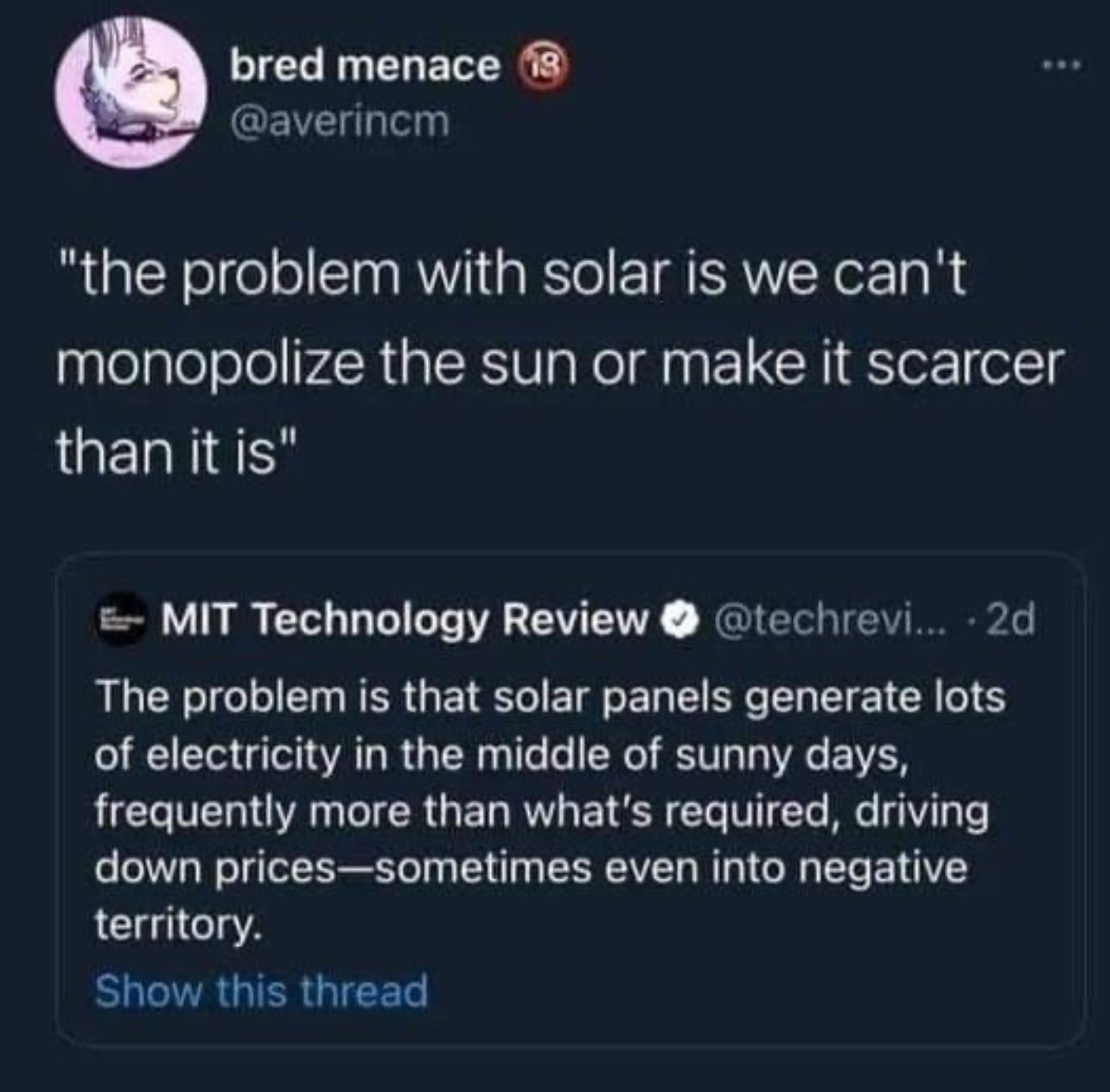this post was submitted on 02 Oct 2024
1694 points (95.6% liked)
Microblog Memes
5931 readers
3951 users here now
A place to share screenshots of Microblog posts, whether from Mastodon, tumblr, ~~Twitter~~ X, KBin, Threads or elsewhere.
Created as an evolution of White People Twitter and other tweet-capture subreddits.
Rules:
- Please put at least one word relevant to the post in the post title.
- Be nice.
- No advertising, brand promotion or guerilla marketing.
- Posters are encouraged to link to the toot or tweet etc in the description of posts.
Related communities:
founded 1 year ago
MODERATORS
you are viewing a single comment's thread
view the rest of the comments
view the rest of the comments

From a grid stability point, you can't produce more than is used, else you get higher frequencies and/or voltages until the automatics shut down. It's already a somewhat frequent occurence in germany for the grid operator to shut down big solar plants during peak hours because they produce way more power than they can dump (because of low demand or the infrastructure limiting transfer to somewhere else)
Negative prices are the grid operator encouraging more demand so it can balance out the increased production.
Spot on! I hoped this comment would be higher! The main problem isn't corps not making money, but grid stability due to unreliability of renewables.
To be fair, the original tweet is kinda shit to begin with. They've unnecessarily assigned monetary value to a purely engineering (physics?) problem.
The original commenter's (OC's) point has nothing to do with renewables' reliability.
It is entirely to do with generation vs demand. Grid operators could ask other generators like coal, nuclear, hydro, etc. plants to curtail so inverter-based renewables can export power, but that's not likely because those producers can't ramp generation up and down as easily.
Grid stability is a problem when you have overcrowding of generation without enough demand on given feeders. This is moreso an issue with the utilities anyways and how they plan their transmission and substation upgrades.
The issue is those coal, nuclear, hydro plants are what produce power when the sun isn't out. If you consistently shut them down for solar, they will go out of business and there will be no way to provide electricity when solar doesn't.